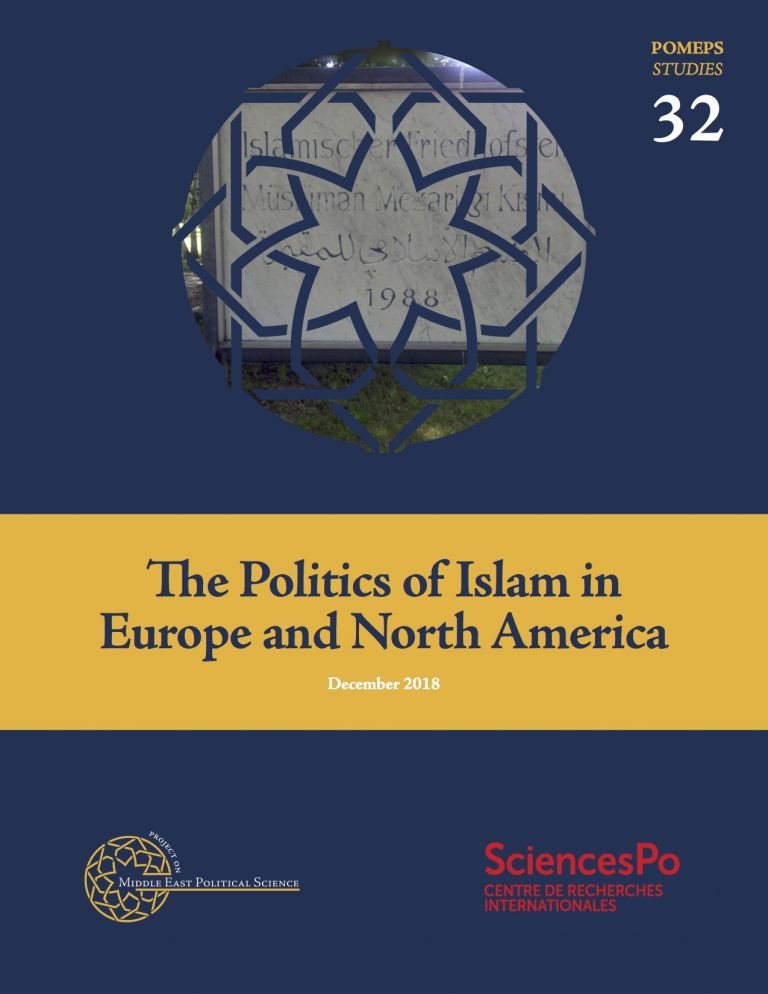The Project on Middle East Political Science at George Washington University’s Elliott School of International Affairs published a collection of papers from a workshop on “The Politics of Islam in Europe and North America.” The work of participating scholars represents some of the innovative perspectives and understudied topics in a field that is increasingly employing new methods and more ethnographic research.
There has traditionally been a wide divide between the study of the politics of Islam in the Middle East and in the West. Middle East-focused research in American political science has focused in great depth on issues such as political mobilization, social service provision, electoral performance, and Islamist ideologies. American research on Islam in the West, by contrast, has often focused on cultural conflicts, immigration, terrorism, and anti-Islamic campaigns. Today’s European scholarship on Islam distinguishes itself by a wide spectrum of methods, topics, and fieldworks, with a trend toward strong ethnographic research. Over the last two decades, a prolific and pluralist field of scholarship on Islam and Muslims in Europe and the U.S. has emerged and brought to the fore innovative perspectives and understudied topics.
On June 28, 2018, POMEPS and Sciences Po CERI convened a workshop with a dozen scholars of Islam and politics in Europe and North America to engage with these various perspectives. Their work in POMEPS Studies 32: The Politics of Islam in Europe and North America illustrates the richness of the field of the politics of Islam in Europe and the U.S.





